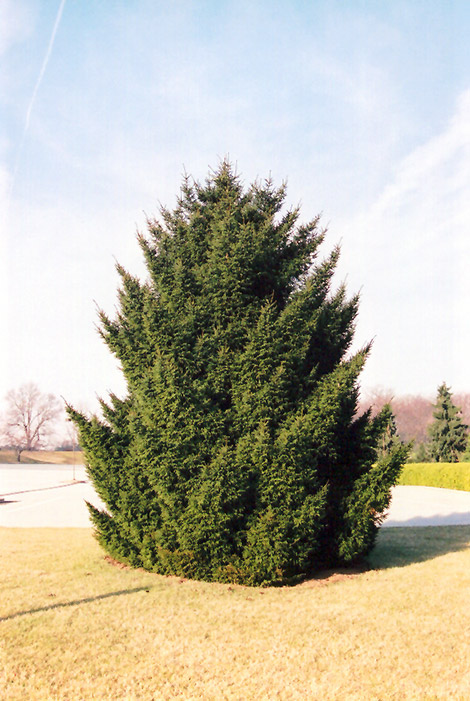Brunswick
422 Bath Road
Brunswick, ME 04011
1-800-339-8111
207-442-8111
Falmouth
89 Foreside Road
Falmouth, ME 04105
1-800-244-3860
207-781-3860
Cumberland
201 Gray Rd (Route 100)
Cumberland, ME 04021
1-800-348-8498
207-829-5619
Height: 60 feet
Spread: 25 feet
Sunlight:
![]()
Hardiness Zone: 5a
Description:
One of the most beautiful of all the spruces, this is a tall, upright spire-like evergreen with dense, dark green foliage all season long, branches have a gracefully pendant habit, a great tree for adding vertical interest to the landscape skyline
Ornamental Features
Oriental Spruce is primarily valued in the landscape for its distinctively pyramidal habit of growth. It has dark green evergreen foliage which emerges light green in spring. The needles remain dark green throughout the winter. The rough brown bark adds an interesting dimension to the landscape.
Landscape Attributes
Oriental Spruce is a dense evergreen tree with a strong central leader and a distinctive and refined pyramidal form. Its relatively fine texture sets it apart from other landscape plants with less refined foliage.
This is a relatively low maintenance tree. When pruning is necessary, it is recommended to only trim back the new growth of the current season, other than to remove any dieback. It has no significant negative characteristics.
Oriental Spruce is recommended for the following landscape applications;
- Vertical Accent
Planting & Growing
Oriental Spruce will grow to be about 60 feet tall at maturity, with a spread of 25 feet. It has a low canopy, and should not be planted underneath power lines. It grows at a slow rate, and under ideal conditions can be expected to live for 70 years or more.
This tree should only be grown in full sunlight. It is very adaptable to both dry and moist growing conditions, but will not tolerate any standing water. It is not particular as to soil type or pH. It is somewhat tolerant of urban pollution, and will benefit from being planted in a relatively sheltered location. Consider applying a thick mulch around the root zone in winter to protect it in exposed locations or colder microclimates. This species is not originally from North America.

